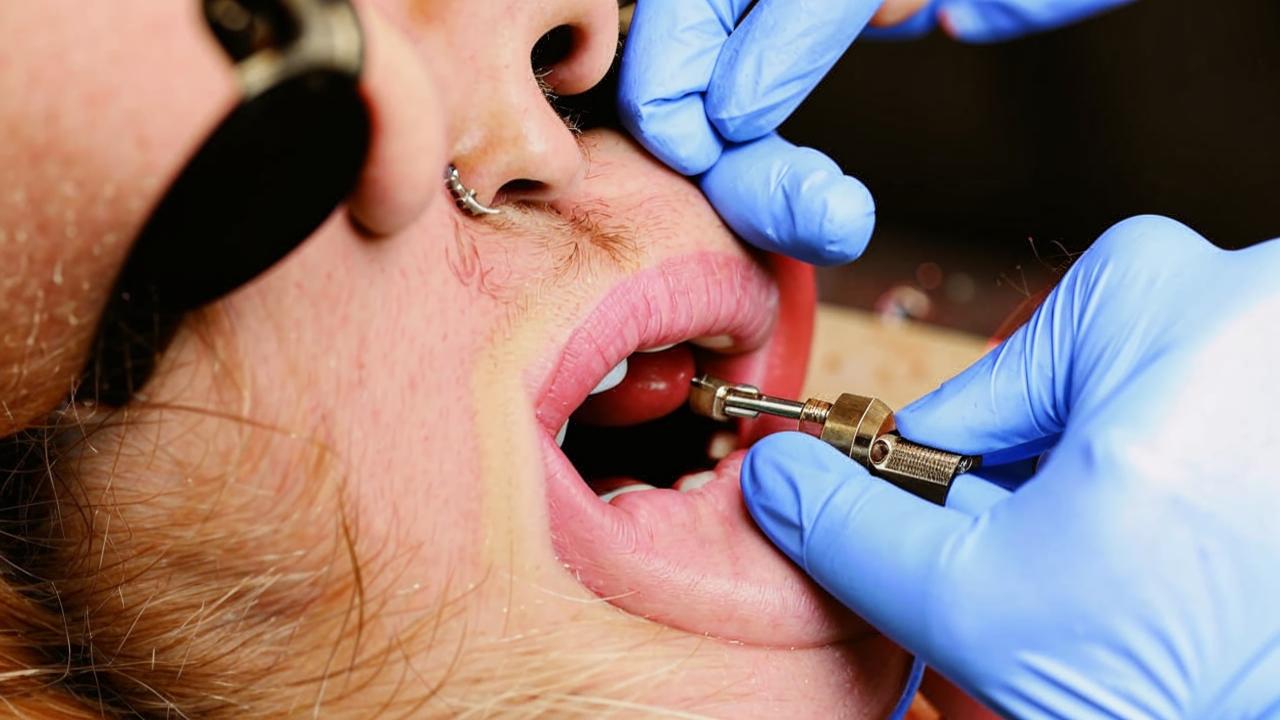The human tongue can tell us a lot about the state of health. For example, examination of this organ as a diagnostic method is a specialty of traditional Chinese medicine; this procedure was performed as far back as the Shang Dynasty (from 1600 BC to 1000 BC).

Therapist, preventive medicine physician, pediatrician, Health Buddy health coach.
The appearance of the tongue can speak not only to the condition of the gastrointestinal (GI) tract, but also to many systemic diseases and deficiencies in the human body. I will tell you why you need to monitor its condition and what diseases it can talk about.
What does a healthy tongue look like?
To understand when it is worth “sounding the alarm”, you need to know what a healthy tongue looks like. It is pink in color and slightly rough to the touch, the papillae of the tongue should be clearly defined. Also important are moderate moisture, absence of pain and swelling.

There may be a slight plaque on the tongue, which can be easily removed with a tongue scraper or brush. It is worth paying attention to the unpleasant odor, which indicates poor hygiene and a large number of accumulated bacteria.
How to take care of the tongue?
The unhealthy appearance of the tongue can also speak of a lack of oral hygiene. Taking care of it is as important as your teeth, so if you want to keep your mouth and your whole body healthy, you need to:
- drink enough water – liquid helps wash bacteria and food off your tongue, and helps prevent dry mouth, which increases the risk of fungal infections and tooth decay;
- brush not only your teeth but also your tongue – use a toothbrush, tongue scraper or mouthwash. This helps kill bacteria and remove dead cells that can cause bad odor;

- stop smoking – cigarettes can cause irritation and dryness of the mucosa, contributing to the development of a disease such as leukoplakia (mucosal lesions).
Regular cleaning of the entire oral cavity improves health and can affect other processes in the body, for example, to normalize blood pressure.
What diseases can tell about the state of the tongue?
In the presence of pathologies, the tongue changes its texture and color:
Dense plaque on the tongue
There are many varieties of plaque on the tongue – from white to dirty yellow and even black. You need to understand that any formations on the surface of this organ are not the norm and can speak of digestive problems, such as:
- violation of enzymatic function, peristalsis;
- intestinal dysbiosis;
- parasitic diseases;
- deficiencies in macro- and micronutrients;
- endocrine disruption.
Plaque can be a sign of stomatitis – infection of the mucous membranes of the mouth, inflammation, infection, or a consequence of stress, as well as immune and endocrine disorders.
White “hairy tongue” can speak of immunodeficiency, HIV disease, especially in combination with candidiasis – white curd-like plaque on the tongue.
Black “hairy tongue” can appear after taking antibiotics, talk about fungal invasion in the lower GI tract and the impact of mycotoxins on the entire human body.
Ulcers on the tongue
The formation of round ulcers is characteristic of syphilis. Feelings of stress, fatigue and anxiety are also common causes of inflamed defects.
The authors of a study published in the Journal of Medical Case Reports volume found a significant association between depressive symptoms and the appearance of mouth ulcers.

Usually ulcers go away within a few weeks, if the cause is identified and treatment is necessary. However, it is also worth avoiding spicy, salty and acidic foods and aggressive mouth cleansers (such as paste containing sodium lauryl sulfate).
Bright red tongue
In a common “childhood” infection – scarlatina – the tongue becomes crimson, with clearly defined papillae. This is one of the main signs by which you can make a diagnosis on examination.
A deficiency of vitamin B12, folic acid or iron can also cause a reddened tongue.
A shiny, overly moist tongue
In B12-deficiency anemia (pernicious anemia), the tongue has a “varnished” appearance with a characteristic shine.
Cracks on the tongue
The presence of significant cracks on the tongue indicates viral and bacterial infections or multiple deficiencies in the body, including protein deficiency in the diet.

Spots on the tongue
“Geographic” tongue is associated with a person’s allergic predisposition. Relief spots can talk about digestive problems, appear with aphthous stomatitis (small superficial ulceration of the mucous membranes) and glossitis (inflammation of the tissues of the tongue).
Tooth impressions on the tongue
If after waking up you notice teeth prints on the tongue, it can indicate problems with the liver, kidneys, violation of the lymphatic drainage system.
Swelling of the tongue
Swollen tongue speaks of various allergic reactions of immediate type or trauma to the organ, including a reaction to piercings. Sometimes swelling accompanies diseases of the thyroid gland.

Pain and bumps on the tongue
If your tongue hurts or has bumps, it may be a sign of infection or inflammation caused by trauma – you may have accidentally bitten your tongue or burned yourself with a hot drink or food.
When should I seek medical attention immediately?
You should seek medical attention if:
- you are concerned about the color of your tongue or any changes in sensation that don’t go away for a long time;
- you notice any lumps or lumps that do not go away;
- your tongue swells after eating certain foods. The swelling may spread to the back of your throat and cause difficulty breathing;
- you have a non-healing ulcer in your mouth – in rare cases this can be a sign of oral cancer;
- you have unexplained and severe pain/itching in your tongue that lasts for several days;
- you have a white spot/stain on your tongue that doesn’t go away for two weeks.

The tongue can not only show the presence of certain diseases, but on the contrary, it can affect the functioning of certain systems. Therefore, it is important to take care of your mouth and watch out for the appearance of various changes.





